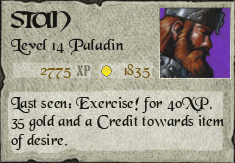It takes an hour to get to work in the morning, and an extra fifteen minutes or so to get home in the afternoon. That ends up being a lot of time alone with my thoughts, which often turn to my writing and what I want to accomplish in it. Now, some days I would be lucky, and I'd be near my destination when ideas struck, but more often than not I would develop something, growing more and more excited, only to forget it by the time I had access to paper or a computer.
Eventually I grew frustrated enough that I started looking up mini-recorders online. Microcassette recorders are really cheap these days, so I started looking to see what kind of digital technology would be in my budget. There is some pretty sweet stuff out there for people with tons of money to blow, and once I was done pawing at the screen I decided on a forty dollar one at Best Buy. It's digital and can allegedly store way more audio than I need, but it doesn't have USB connectivity. I did crave the USB, but I think I might be better off for not having it.
I keep this bad boy in the car, and if an idea strikes, I hit the record button and mumble awkwardly into it. By the end of the week, I've usually got around ten sound bytes. Since the thing doesn't have USB connectivity, I can't just drag them onto my computer -- I'm forced to listen to them and type them up, which gets my brain working on the ideas again, so I end up with even more material than I would if I sat down and tried to remember everything.
Obviously this sort of thing isn't for everyone, but I highly recommend it to any writer who spends a lot of time in the car.


